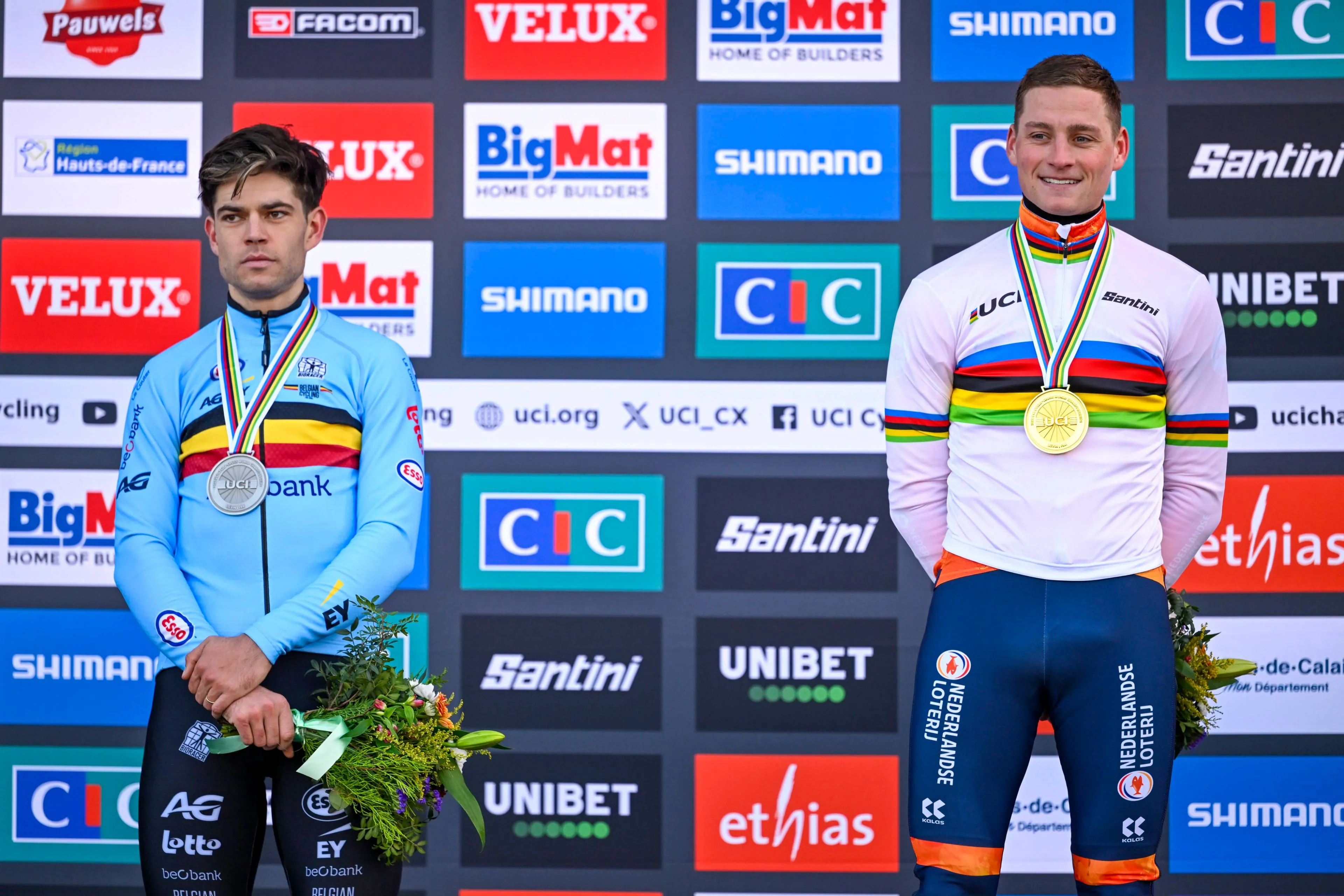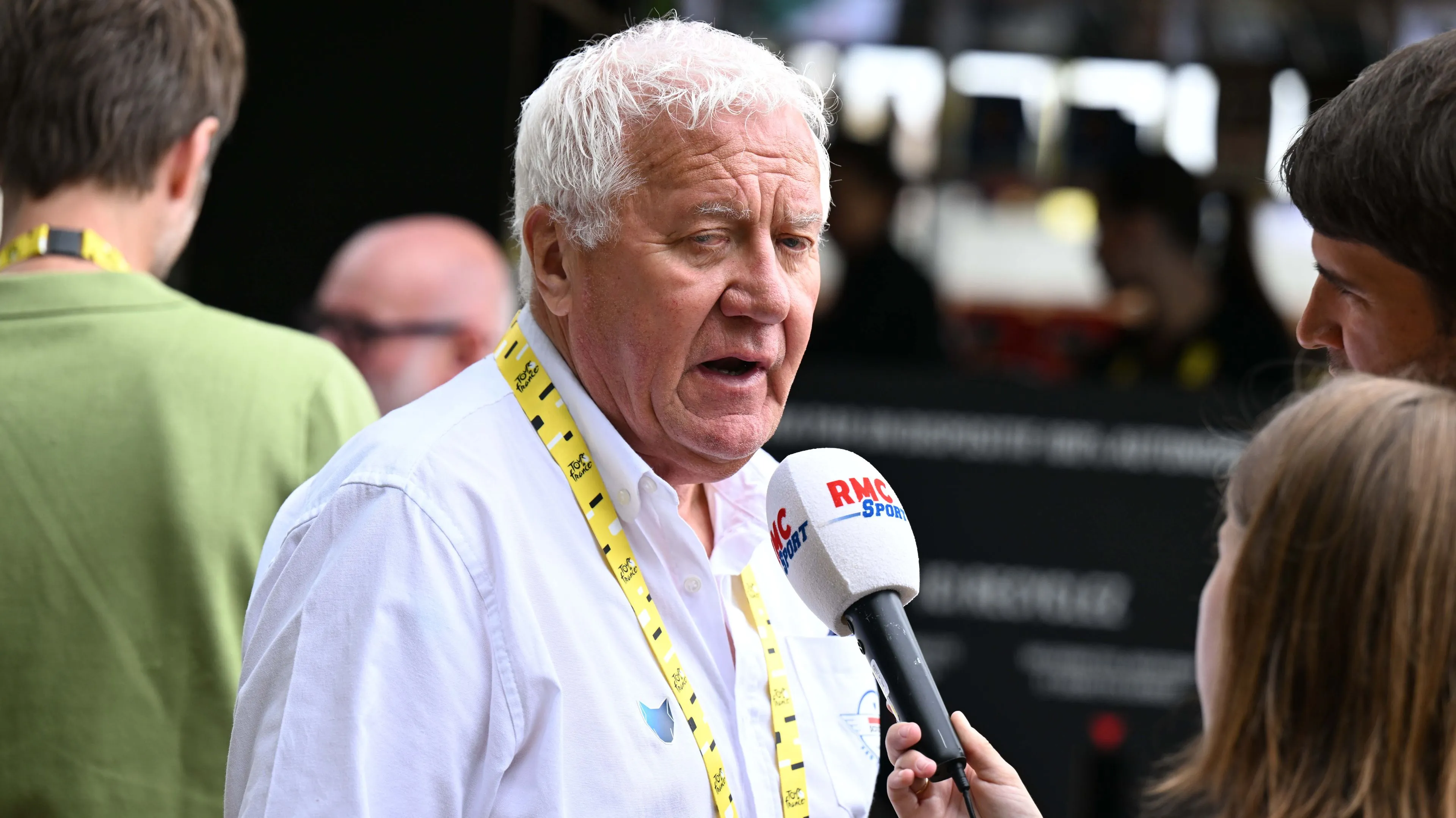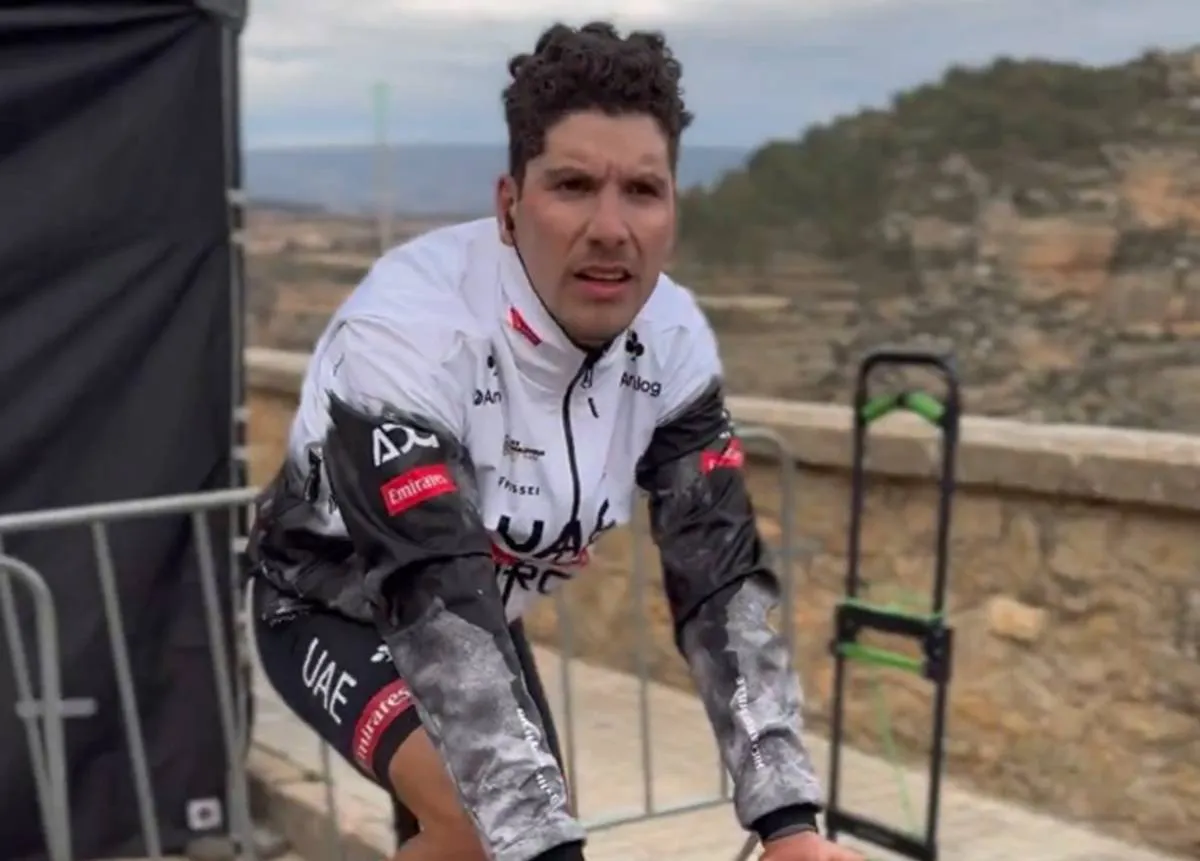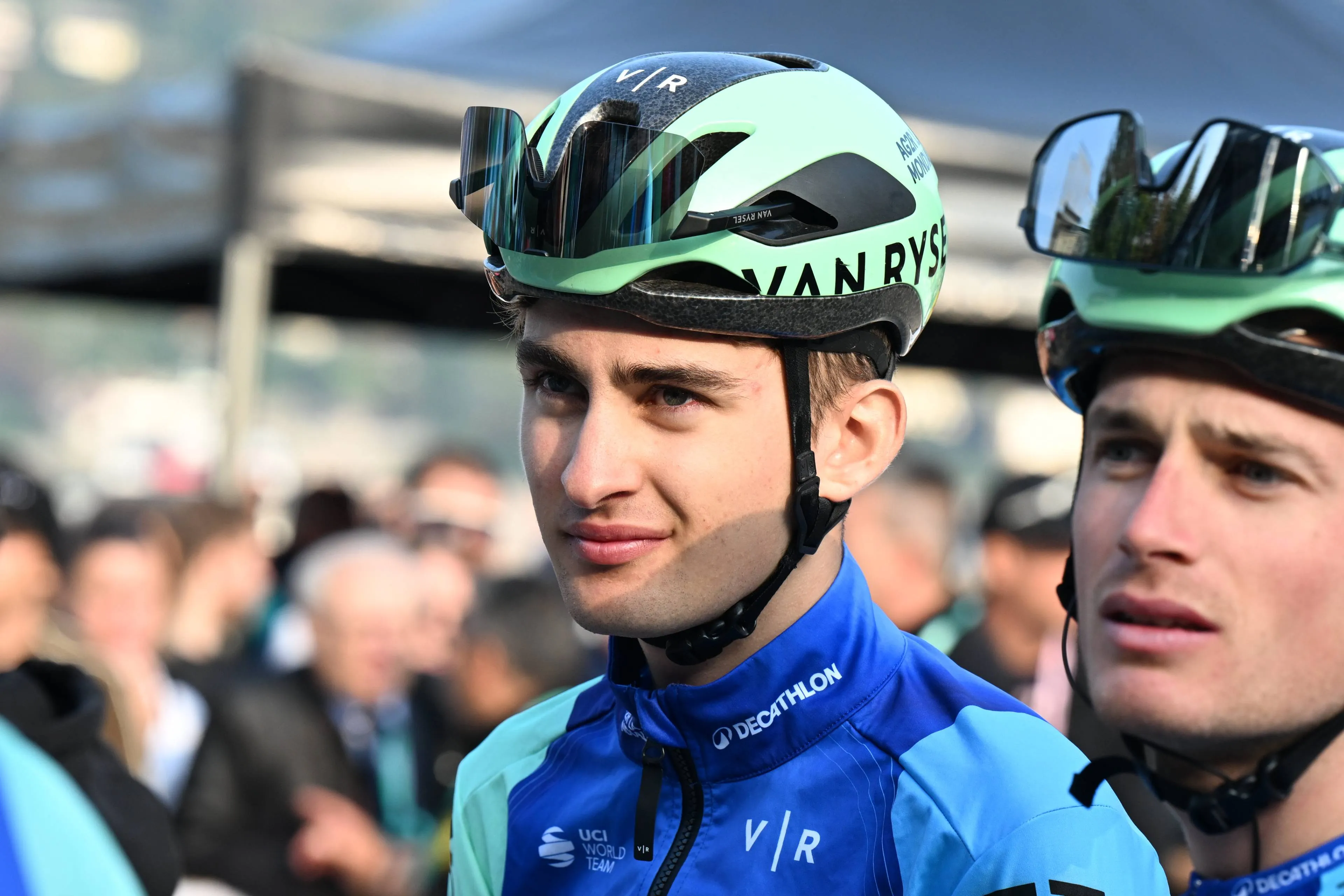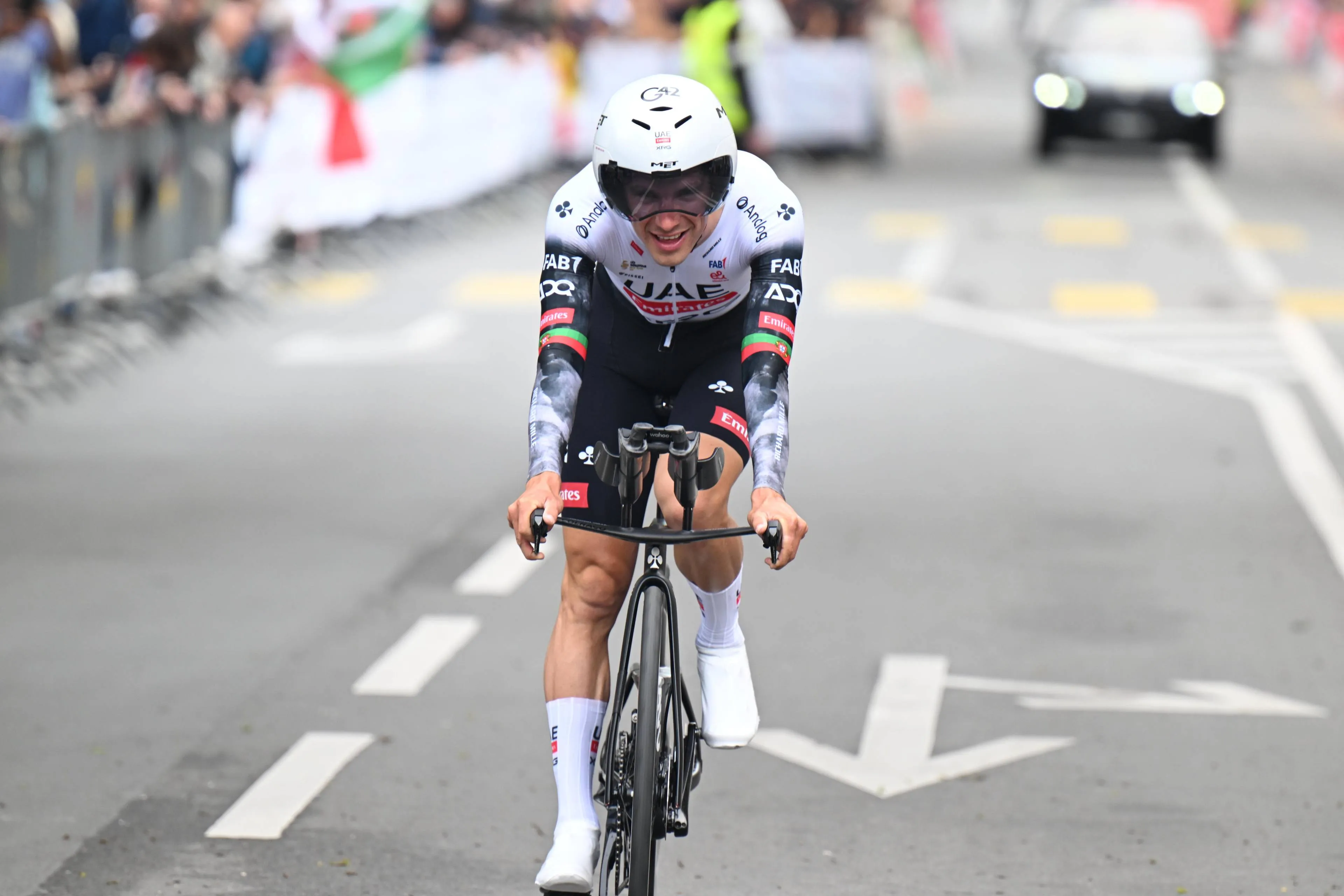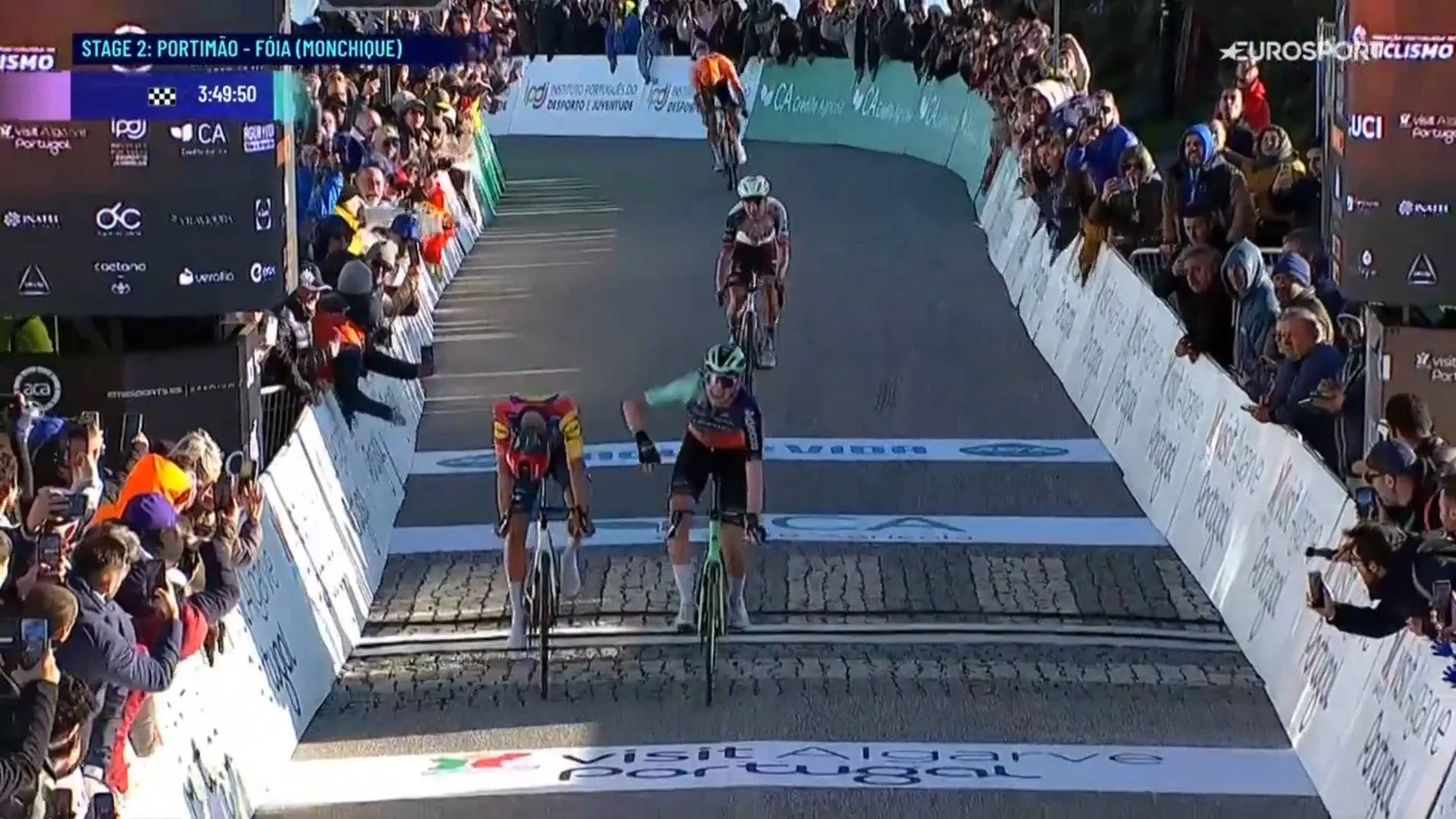"Safety must be without compromise" - Visma boss Richard Plugge believes cycling must stop cutting corners on safety
CyclingSaturday, 08 February 2025 at 15:00

The issue of safety in cycling has once again become a major
topic of discussion in 2025. Recent months have seen multiple tragic incidents
in the sport. British junior cyclist Aiden Worden, aged eighteen, lost his life
following a training crash earlier this month. Similarly, nineteen-year-old
Italian rider Sara Piffer also passed away after a training accident in
January.
Richard Plugge, Managing Director at Team Visma | Lease a
Bike, has shared his thoughts on the matter. His team endured numerous crashes
throughout 2024, affecting key riders such as Jonas Vingegaard and Wout van
Aert. Fortunately, both athletes fully recovered, yet concerns about cycling
safety remain prevalent.
Read also
Speaking to IDLProCycling.com, Plugge weighed in on the work
of SafeR, the safety organisation established in Bilbao in 2023, who recently
held an online press briefing. However, it is safe to say that Plugge expressed
a strong dissatisfaction with its progress. "There was a great plan. It
was ready to go as an independent body and was presented in Bilbao. But in the
end, it turned into a political construct where everyone just points fingers at
each other. Safety must be without compromise. Now the focus is shifting to the
speed of the riders, but come on! Just remove the sidewalk from the Tour, the
one that Primoz Roglic and Alexey Lutsenko crashed over. That cost Red Bull a
top Tour finish and millions in damage."
He continued by emphasising that ensuring safety involves
both rider conduct and course layout. "With all the experts involved in
setting up SafeR, we determined that safety is about both rider behaviour and
course design. But that fundamental idea is too often ignored. Look at MotoGP, those
bikes go five times faster than us. And yet, we finish a race in front of a
city hall where cars aren’t even allowed because it’s deemed too dangerous.
Where the speed limit is 20 km/h, but we arrive at 70."
Read also
According to Plugge, teams are willing to financially
support safety measures. "Teams are willing to invest money in this. Even
if it saves just one rider per year, it’s already worth it," he affirms.
"It comes down to decision-making: do they really want
to address the issue, or are they just playing politics?" he asks.
"So it's up to the sport and the UCI to enforce on race organisers."
Plugge also notes the tendency for discussions on safety to
be diverted to other topics, and perhaps 2025 is the year cycling needs to
knuckle down and find a solution to this problem. "It’s annoying that
people always point to other factors instead of focusing on this. But that’s
out of our hands. What we can control is what we do ourselves. There have been
times when our own riders admitted they could have ridden more cautiously, so
we’ve looked closely at that."
Read also
His team has taken steps to reduce risks, conducting
internal reviews on crashes and illnesses. "We first look at what we can
do within the team to prevent crashes. We’ve analysed crashes and illnesses
within our squad. We’re actively working on it, cognitive testing, training,
and so on. Unfortunately, this isn’t just an issue for us but for other teams
as well. You can see it now with Remco Evenepoel, who will be side lined for a
while."
Looking to the future, Plugge anticipates significant
transformations in cycling due to evolving external factors. "I think
cycling will look very different in ten years, simply because the world around
it is changing. In many places, racing the way we do now is becoming
practically impossible due to traffic, permits, and other factors. Ten years
ago, the Tour of Flanders was heavily criticized for introducing circuit-style
racing, but if they tried to reverse that decision now, it would spark another
revolution in Belgium. I think cycling will have to adapt more in that
direction to remain manageable."
Read also
"These days, it’s almost impossible to organize a race around Nice because
of all the road infrastructure. It’s getting harder and harder." However,
he also acknowledges some positive changes. "Look at the Tour of the
Netherlands, it should be organized with the future of cycling in mind."
Regarding financial matters, Plugge highlights the necessity
of expanding the sport. "When we talk about budgets, which may soon be
capped, it’s about growing the sport to new heights. The arrival of Red Bull is
fantastic for cycling. INEOS is also an incredible partner. Having such
big-name brands involved in the sport is obviously a huge win," he states.
He is also open to the idea of Saudi investment in cycling. "A lot of
money is flowing into cycling from different directions. Personally, I’m always
happy with any support that helps grow the sport—because it gets more people on
bikes, moving from A to B using human power instead of cars."
Read also
Plugge reiterates that cycling is competing against other
sports, not individual teams. "Our competition is not Picnic or UAE, it’s
football and Formula 1," he asserts. "We need to ensure that we can
compete with an F1 team or a football club. In Belgium, it’s different, but in
the Netherlands, Tom Dumoulin can walk around Amsterdam, and no one will
recognize him. That’s not a problem for him, but it is a problem for cycling.
How do we change that? By having the top riders race against each other more
often."
A key part of his vision involves ONE Cycling, an initiative
he stresses that he thinks may hold some positive ideas. "David Lappartient wants to leave the sport in a
better place. Everyone is facing the same issue, where will cycling be in ten
years? Right now, we have a golden opportunity, and we need to protect it.
Lappartient understands that we need to move forward." With speculation
about Lappartient potentially moving to the International Olympic Committee,
the UCI presidency may soon be up for grabs. When asked about his own ambitions
for the role, Plugge dismisses the idea. "I don’t see myself as UCI
president. I’m not a politician. David is a great one, but I’m more of a
businessman than a politician."
claps 1visitors 1
Just in
Popular news
Latest comments
- This excuse is harmless, just quaint and amusing. The excuse I really disliked was when he accused a mechanic of improperly adjusting his saddle, endangering the mechanic's job: blaming others for your own limitations is a serious matter.
 maria2024202419-02-2026
maria2024202419-02-2026 - ok so this is impressive - I trashed this guy all winter, get a pro win before the anointing. against a quality field. And Onley and Riccitello look good too. fun to see young blood.mij19-02-2026
- Minor flaws.... thats like suggesting Genghis Khan was a bit aggressive with other countriesslappers6619-02-2026
- Then you carry on if that's what makes you happyslappers6619-02-2026
- Fabio cannot catch a break.mij19-02-2026
- OK, today is the "air conditioner"... yesterday was a cramp... on saturday a bee will sting him in his tongue... his tongue will swell up and mustafa gets no oxygen. Because of his swollen tongue, Remco won't be able to give us a new excuse. Remco and the spanish rat Ayuso should be on the same team. They both have a ton of excuses and both of them are liars. Ad acta.Mou-Cro-HR19-02-2026
- Florian Lipowitz is secretly happy
 Rafionain-Glas19-02-2026
Rafionain-Glas19-02-2026 - The crucial thing to remember is that Remco was broken by the pace of Gall and Tiberi, not Del Toro's. Remco's excessive antics are because he doesn't want anyone to think that he's 'genuinely' struggling. You can always say 'he got cramps' because 'his preparation didn't go to plan', but the thing is that there is a limit to the number of excuses and exceptions that there can be. Eventually everyone just accepts that he's reached his ceiling on the climbs.
 Rafionain-Glas19-02-2026
Rafionain-Glas19-02-2026 - Bahraini suspicious..Santiago19-02-2026
- The problem is, a British 'boss' opening the gates, when the native workers not wanting them!
 leedorney19-02-2026
leedorney19-02-2026
Loading
Write a comment


